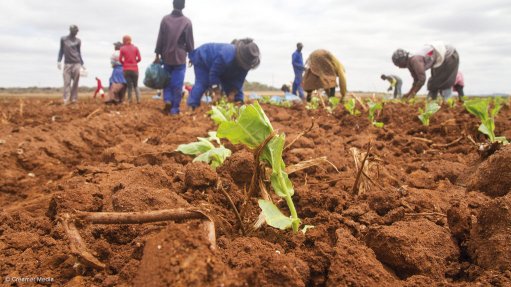
JOINT CONTRIBUTION
The banks’ contribution will finance projects in areas, such as agriculture, food security, renewable energy, small and medium enterprises and human development
Photo by: Duane Daws
The African Development Bank (AfDB) and the Islamic Development Bank (IsDB) have signed a landmark agreement to strengthen their partnership at country level and jointly contribute $2-billion over the next three years to finance projects in agriculture, food security, renewable energy, small and medium-sized enterprises (SMEs), as well as human development, such as health and education.
The IsDB is a multilateral development financing institution based in Jeddah, Saudi Arabia. It is among the largest contributors of cofinancing to the AfDB. The two banks cofinanced projects valued at more than $2.5-billion from 2002 to 2016.
The AfDB has a country presence in 21 out of the 27 common member countries with the IsDB.
As part of the new agreement, the AfDB and the IsDB will also complement and use each other’s staff expertise at country level.
To realise the shared objective of the agreement, the AfDB and the IsDB will each contribute $1-billion over the period for joint activities that focus on these priority areas and sectors.
Speaking at the agreement signing ceremony earlier this month at the AfDB headquarters in Abidjan, in Côte d’Ivoire, AfDB president Akinwumi Adesina reaffirmed the bank’s commitment to and interest in building a stronger partnership with the IsDB.
The IsDB will also engage with the AfDB to implement the High 5s – the five priorities on which the AfDB is focusing to help accelerate Africa’s economic growth and transformation.
“The AfDB and the IsDB share common traits and the agreement we are signing is the highest with any development bank. We are very excited about the range of things we can do together and we are ready to work with you [the IsDB] to [progress] this movement,” Adesina said.
Stressing the need for job creation for women and youth, Adesina emphasised that the banks would work on a pipeline of projects in Africa.